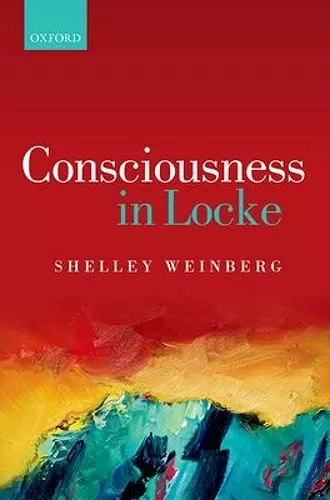Consciousness in Locke
Format:Hardback
Publisher:Oxford University Press
Published:7th Jan '16
Currently unavailable, and unfortunately no date known when it will be back

Shelley Weinberg argues that the idea of consciousness as a form of non-evaluative self-awareness runs through and helps to solve some of the thorniest issues in Locke's philosophy: in his philosophical psychology and in his theories of knowledge, personal identity, and moral agency. Central to her account is that perceptions of ideas are complex mental states wherein consciousness is a constituent. Such an interpretation answers charges of inconsistency in Locke's model of the mind and lends coherence to a puzzling aspect of Locke's theory of knowledge: how we know individual things (particular ideas, ourselves, and external objects) when knowledge is defined as the perception of an agreement, or relation, of ideas. In each case, consciousness helps to forge the relation, resulting in a structurally integrated account of our knowledge of particulars fully consistent with the general definition. This model also explains how we achieve the unity of consciousness with past and future selves necessary for Locke's accounts of moral responsibility and moral motivation. And with help from other of his metaphysical commitments, consciousness so interpreted allows Locke's theory of personal identity to resist well-known accusations of circularity, failure of transitivity, and insufficiency for his theological and moral concerns. Although virtually every Locke scholar writes on at least some of these topics, the model of consciousness set forth here provides for an analysis all of these issues as bound together by a common thread.
...an important book which treats Locke as the deeply systematic philosopher he surely is. * Matthew Priselac, Locke Studies *
Weinberg's Consciousness in Locke is an important study of an area of Locke's thought that has been relatively neglected in recent years. She displays an impressive knowledge not only of Locke's texts but also of the secondary literature; her command of the recent literature (some of it as yet unpublished) is particularly impressive. Weinberg also makes some fascinating and illuminating connections between Locke's views on consciousness and the phenomenological theories of Brentano and contemporary work by Uriah Kriegel ... as a sustained attempt to offer a sympathetic overall reading of Locke's theory of consciousness, this book is a valuable contribution to the literature. * Nicholas Jolley, mind *
I strongly recommend Weinberg's excellent book. It will certainly be an enormously valuable resource for scholarly work on Locke's philosophical psychology for many years to come. * Ruth Boeker, Journal of the History of Philosophy *
this is a rich and stimulating book! ... This book is important to Locke scholarship as well as to those who are interested in the history of theories of consciousness ... It is a model of good historical scholarship. * Larry M. Jorgensen, Notre Dame Philosophical Reviews Online *
- Winner of Winner of the Journal of the History of Philosophy's 2017 Best Book in the History of Philosophy Prize.
ISBN: 9780198749011
Dimensions: 241mm x 166mm x 20mm
Weight: 512g
258 pages